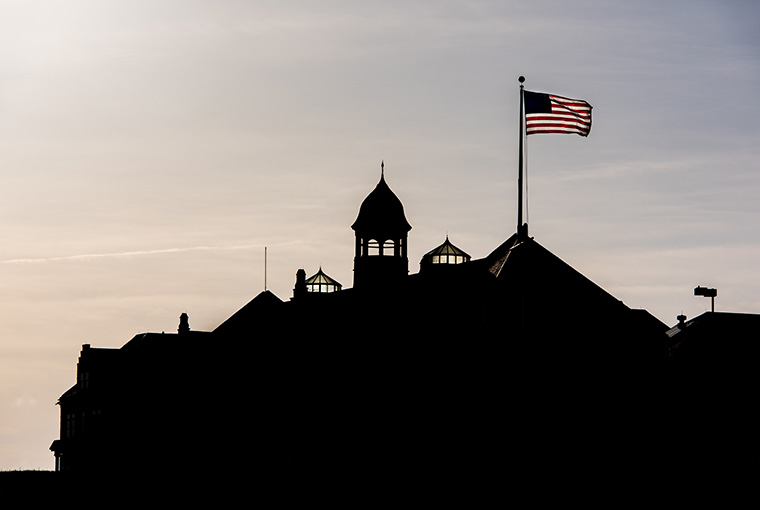U.S. Naval War College Students Complete Capstone Exercise in National Security Course

On March 1, U.S. Naval War College students competed in a National Security Decision Making course final exercise, the capstone event of the 13 weeks of study in the college’s National Security Affairs Department.
The exercise was judged by a prestigious panel of real-world experts – David Chu, president of the Institute for Defense Analyses and former undersecretary of defense for personnel and readiness; Paula Dobriansky, senior fellow at Harvard University’s Belfer Center for Science and International Affairs and former undersecretary of state for global affairs, and retired Adm. Scott Swift, the Robert E. Wilhelm Fellow at the MIT Center for International Studies and a former U.S. Pacific Fleet commander.
Two teams of senior students from the College of Naval Warfare and Naval Command College presented their assessments of the international security environment, which included outlines of national and military strategies and future force structures.
The first team put forth the premise that U.S. forces need to prepare to decisively defeat aggression in a “primary theater” – while participating in multinational efforts to hold a secondary theater.
To position for this, the team proposed reducing forces allocated to many of the U.S. combatant commands – Central Command, Special Operations Command, Africa Command and Southern Command – and developing new operational concepts for Indo-Pacific Command and European Command.
The second team called the threat from cyber and information warfare ubiquitous and realigned U.S. forces in response.
This team proposed to reduce conventional forces and cut back the number of aircraft carriers and other large-scale Navy ships in favor of “next-generation” carriers, smaller warships, attack and fighter aircraft, intelligence-surveillance-reconnaissance systems and Army combat teams, with the biggest increases in special-operations troops and cyber teams.
Swift congratulated the teams on “an incredibly rich dialogue.”
Chu noted that the United States has been too tied to the military apparatus that prevailed in the Cold War.
“I was very encouraged by the willingness of both panels … to think anew about what military capabilities we really need and what kind of physical investments will get us those capabilities,” he said.
Dobriansky said both teams seemed to appreciate how complicated the future will be.
“I was very struck by the fact that both really addressed how complex the geopolitical future is, in terms of domain, scale, scope, and the complexity of the kinds of trans-national challenges that are before us,” she said.
In the end, the James V. Forrestal Award for Excellence in Force Planning was bestowed to both teams.
